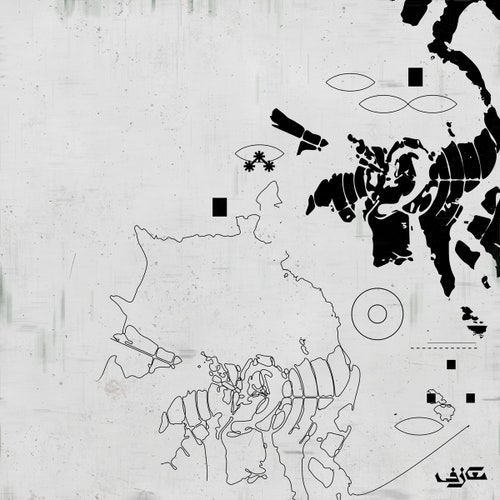Listen to “Matkhafsh Menni” by Aya Metwalli
Last month, pallets of fireworks ignited 2750 tons of ammonium nitrate that had been abandoned in the Port of Beirut, setting off an explosion that demolished an enormous swath of the Lebanese capital. Some 200 people died, at least 6,000 were injured, and hundreds of thousands were left homeless. Thousands of Lebanese marched to protest the years of government corruption and negligence that led to the disaster. Headquartered in Tunisia, the Arabic-language music magazine Ma3azef was one of many cultural organizations to launch a relief effort. Co-curated with New York mastering engineer Heba Kadry, Nisf Madeena (Arabic for “half a city”) brings together 17 artists from around the world—Egypt’s ZULI, Kenya’s Slikback, Tunisia’s Deena Abdelwahed, the Kuwati-born Fatima Al Qadiri, the Chilean-born Nicolás Jaar—to raise funds for relief efforts in the cultural sphere. Amid a vast array of styles—crisply stepping club music, dreamy ambient, digital dancehall—Aya Metwalli’s “Matkhafsh Menni” stands out as an obvious highlight.
Over the past few years, the Cairo musician has crafted a spellbinding brand of anti-pop that fuses gaseous ambient sonics with airy vocals, squalls of noise, and moments of dark humor (including titles like “Vomit” and Fuck This Shit). Recently, her SoundCloud uploads have been getting darker and more forlorn, and “Matkhafsh Menni” (“Do Not Be Scared of Me”) might be her most austere work yet.
The eight minute song unfolds in three parts. The opening is a lament set to what sounds like a chorus of bees; Metwalli’s mezzo-soprano twists like tendrils of smoke over bassy rumbling and insectoid chatter. “Go to sleep/Go to sleep and rest/Lose consciousness for a second,” she sings in Arabic, as though beckoning to oblivion. Roughly halfway through, her voice and the droning background climb to an anguished climax, and what is left is a winding passage of church organ, melancholy and sour. Finally, as an unresolving tritone stretches out, the tension building, a tiny pocket of silence opens up, giving way to the song’s final part: a bass-heavy minimal-techno pulse overlaid with Metwalli’s tender voice. “Wake up, wake up in love/With me and the world,” she sings:
What have I gotten myself into
Oh my heart, what is wrong with you?
We are in the same boat
Do not be scared of me
Chaos becomes calm; turbulence comes to rest. “Matkhafsh Menni” is a kind of love song, but it is also a song about transformation, solidarity, and empathy. It makes for a moving tribute to the rebuilding that lies ahead—in Beirut and all over the world.
